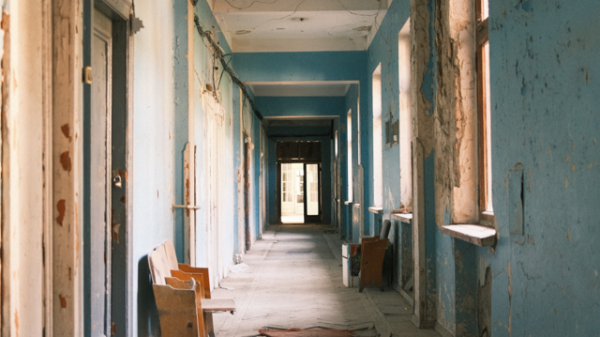The recent by-elections’ results are in: The Tories hold Uxbridge, Labour rebuilt their Red Wall and the Lib Dems were prolific in the South-West. Comment editor Ben Evans examines the results and their significance in the run up to the general election.
On Thursday 20 July three parliamentary by-elections took place across the country. These were a key electoral litmus test potentially only a year out from the next general election. The votes were triggered for various reasons in June. Most notably former Prime Minister, Boris Johnson, stood down from his Zone 6 seat of Uxbridge and South Ruislip after viewing the findings of a Parliamentary report confirming he misled the House of Commons during the infamous ‘Partygate’ scandal. Following him was the MP for the former mining constituency of Selby and Ainsty in Yorkshire, Nigel Adams, a long-term Johnson ally who had lost faith with a life in politics. The third vote had little to do with Johnson. David Warburton, the MP for the picturesque seat of Somerton and Frome in Somerset, who had been suspended from the Conservative Party for allegations of sexual misconduct, decided to resign. So out of nowhere Rishi Sunak stared down a by-election maelstrom. Three defences in three very different seats.
An Uxbridge Upset
This seat was the ultimate prize at stake. The seat of a former Prime Minister, with a healthy majority of 7,210, a Tory oasis in the Labour dominated capital. It truly says something about the state of the polls that this vote was a highly competitive race, with Labour’s Danny Beales viewed as the favourite to steal the seat. Roar sent journalists to Uxbridge on 7 July to investigate the issues close to voters’ hearts. Constituents did feel abandoned by Johnson with a strong disappointment in Brexit and the degradation of their high street. However, the relatively affluent seat was hardly enthused by the Starmer’s Labour and actively opposed to London’s Labour Mayor Sadiq Khan’s ULEZ expansion. This disillusion with our current political class saw a diffused turnout of only 46.11% (down 22.37 percentage points from 2019) and ultimately Labour couldn’t bring enough voters with them to overturn the seat. The Tories achieved an unexpected victory through the skin of their teeth, by only 495 votes. The majority had been decimated, but in our winner takes all politics this was still enough.
The result has been a boost to the anti-ULEZ lobby, even prompting Keir Starmer to ask Khan to reflect on the proposed expansion. Khan remains committed to the policy, claiming cleaner air to be a “human right”. The mayor will stick with the proposals aiming to charge £12.50 for the use of vehicles that fail to meet emission standards. Ultimately, the result shows the Tories are neither dead nor buried. Sunak’s more stable approach and “five pledges” may be getting some voters on board. This is despite his questionable success in achieving them; such as the stubbornly high inflation rate and his legal battle over the controversial proposals to “stop the boats”.
Another Red Brick in the Wall
One should not judge the day as a total failure for Starmer’s Labour as the party was able to reap the rewards of their progress in the Red Wall. The ‘Red Wall’ is the term referring to a group of former Labour strongholds in the Midlands and North of England. Typically former industrial constituencies, that supported leaving the European Union and switched to supporting Johnson’s Conservatives in 2019. After retaking the seat of Wakefield last year, Labour hoped to find further success in Selby and Ainsty. Selby shouldn’t be classed as a purely ‘Red Wall’ seat, however its Northern English location and leave leaning majority made it a target for the Labour Party. The Tory majority of 20,137 would take one the biggest by-election swings in recent memory. A daunting task for the 25 year old Labour candidate, Keir Mather. Symptomatic of the disaffection with the Tories across the North of England, Labour were able to secure a victory and Keir Mather will now receive the title of “Baby of the House” being the youngest sitting MP.
Mather was a former adviser to the now Shadow Health Secretary, Wes Streeting and has worked with the Confederation of British Industry. Unsurprisingly, he sits on the right of the Labour Party. His selection was part of a bid by the Labour leadership to select more “moderate” candidates causing many critics on the left to feel alienated and pushed out. Starmer’s hunt for parliamentary allies within his party does risk shattering his party’s ‘broad church’ credentials, with figures such as former shadow chancellor, John McDonell, claiming a “witch-hunt” of the Labour left. Nonetheless, this will be heralded in Labour circles which have worked to rebuild the relationship with non-metropolitan constituencies. Results like this will give hope to the party that has been locked in opposition for over 13 years.
A Lib Dem South-West Warning Shot
The total now stands at four by-election victories for the Liberal Democrats in this Parliament alone. The seats of Chesham and Amersham, North Shropshire, Tiverton and Honiton and now Somerton and Frome, all predominantly rural and affluent in nature – regarded as post-2015 Tory shoe-ins. These results, emboldened by Sarah Dyke’s victory on the 20th, mark the emergence of a ‘New South’, a set of Southern seats where disaffected affluent voters, who can’t bring themselves to vote Labour, tactically vote for the Liberal Democrats. This is a strong warning shot, signifying the crumbling of the Conservatives’ once rock solid base.
Ed Davey’s Liberal Democrats are seeking to achieve a renaissance after their disappointing result of a mere 11 seats in 2019. That night was a far-cry from their heights of 2005, when the third party secured a record 62 seats or even 2010 when they entered an ultimately doomed coalition government with Cameron’s Conservatives. The Liberal Democrats have been very successful at standing on localised platforms; criticising rural house building, HS2 and sewage dumping on various occasions. However, despite their recent victories, on a national scale their policies are contradictory; supporting HS2 and calling for more houses to be built in order to ease rising property prices. A successful political party has to mould itself to attract different voters, but it is unsustainable to support directly opposed policies. The Lib Dems would do well to remember the merciless response from the electorate when the party lost the majority of its seats due to unmet promises in 2015.
"Your party is against housebuilding in by-election target zones, then nationally for it…HS2 is the same?"
— BBC Newsnight (@BBCNewsnight) July 20, 2023
"it comes down to what communities want, what communities need"
Christine Jardine says the Lib Dems are the real alternative to the Conservatives #BBCNewsnight pic.twitter.com/b7KNIPvqpv
Play to the Whistle
The football obsessed Starmer will know this piece of advice very well. His favourite team, Arsenal, will wear a celebratory gold lined kit this season. Many believe it was ordered whilst the Gunners were firm favourites, eight points clear of rivals Manchester City in March last season. Fans of the Premier League will remember how that lead was eroded away in the final months of the season; with the reds falling short to their blue rivals. Presently, the Labour Party are 19 points clear of the Tories with potentially only one year to go. The hard fought upset in Uxbridge will be a stark reminder that there is all to play for. The next fixtures, potential by-elections in Mid-Bedfordshire and Tamworth, may shed further light on the state of play.


















